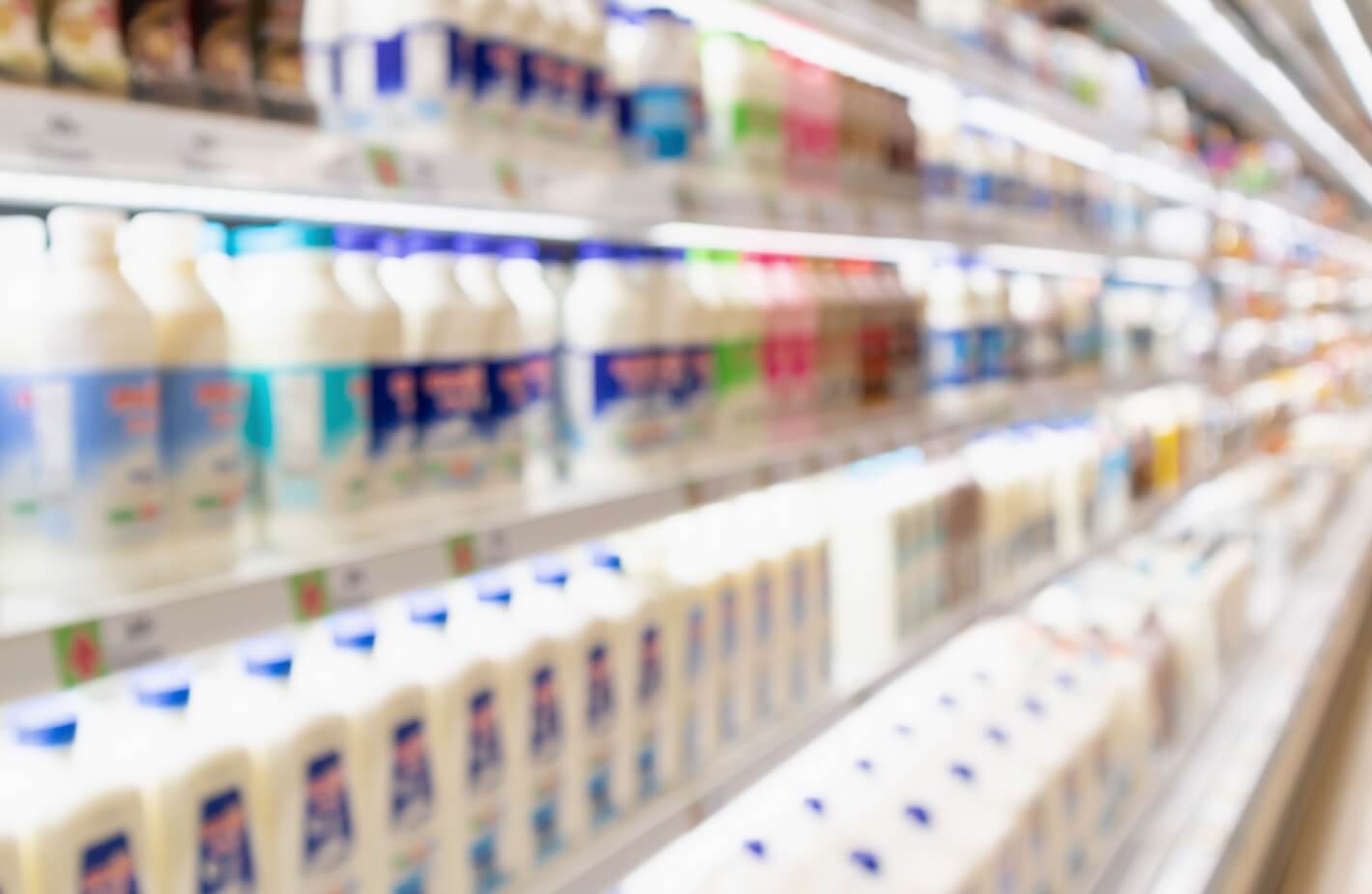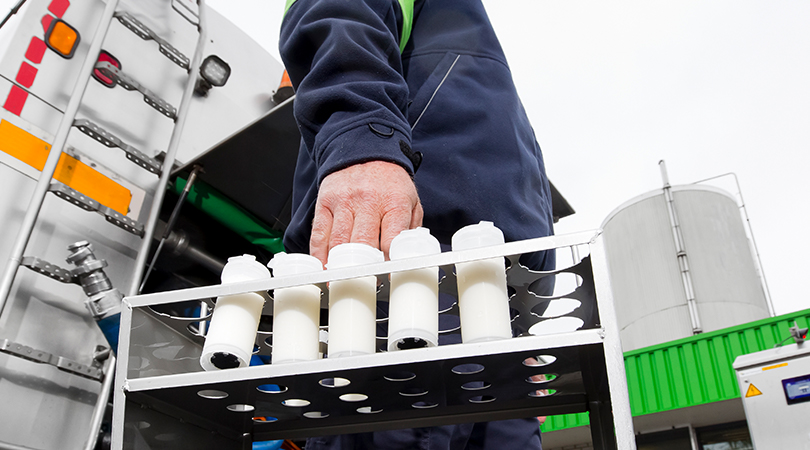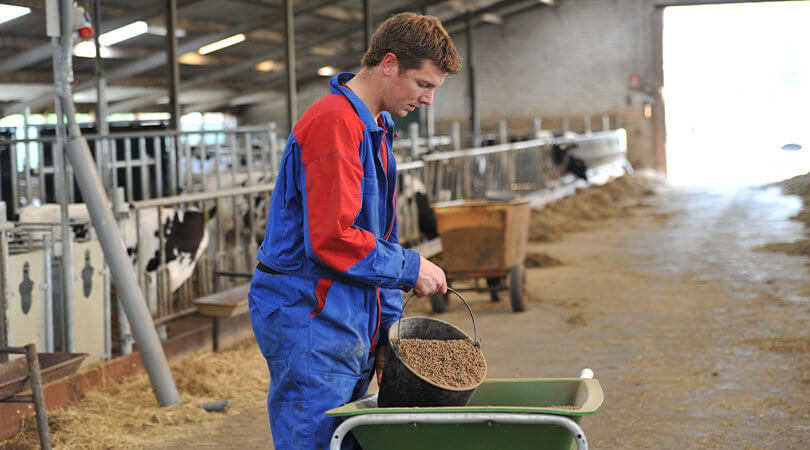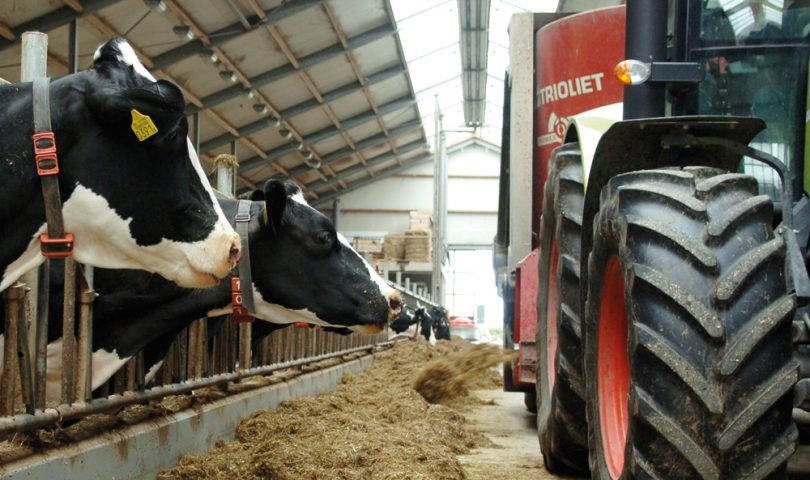
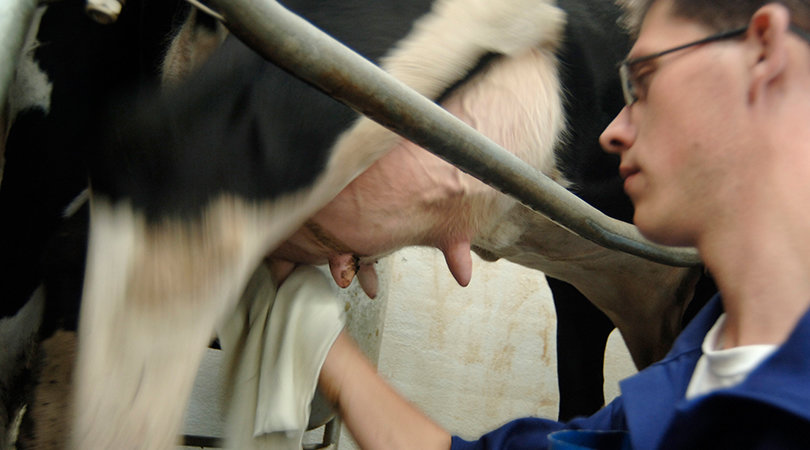
Quality system
To guarantee the quality of the milk, there is a guaranteed quality system.
Read moreA healthy cow delivers the best milk. In order to guarantee the quality of the milk in the Dutch dairy sector, a guaranteed quality system is in place. This quality system is based on the European and Dutch laws. Here requirements have been laid down with respect to, among others, animal health, industrial hygiene, milking, milk storage and milk quality. Apart from the legal requirements, the Dutch dairy sector has added a number of extra requirements in order to even more strictly guarantee the quality and the safety of milk.
Animal health
Animal health has top priority within the Dutch dairy sector. Legislation includes requirements with respect to a good housing climate, administration of animal diseases, the use of veterinary medicines and inspection of the cattle by a veterinarian. In order to raise the animal health to an even higher level, the Dutch dairy sector added extra requirements to the quality system. Thus the health of the animals is continuously monitored by the independent Animal Health Service. The dairy sector also demands from the dairy farmer to work together with a permanent veterinarian, who is specialised in cattle and meets specific quality standards. Additionally, each dairy farmer is obliged to draw up a business health plan and a business treatment plan together with his permanent veterinarian. These extra requirements make a contribution to a healthy dairy stock and high-quality milk.
Industrial hygiene
Good industrial hygiene is essential for the production of safe and clean milk. Therefore standards have been drawn up based on the legislation for maintenance and hygiene of buildings and machines, pest control, crop protection products and the handling of manure, waste and hazardous substances.
Milking and storage of milk
Requirements have also been laid down based on the legislation with respect to milking and storage of milk. Good hygienic conditions are important while milking, such as clean udders of the cows, the milking machine, the milking shed and the milking robot. Good hygienic conditions prevent contamination of the milk with dirt and bacteria. Requirements have also been laid down about the storage of milk. Quickly cooling the milk after milking ensures optimum quality. The Dutch dairy sector has on top of the European legislation drawn up more specific and extensive requirements for improving the quality of the milk. These include extensive inspection programmes on, for instance, antibiotics.
Supervision
There are several forms of supervision to guarantee the European and Dutch requirements of the quality system. Thus the quality of the milk is determined for each milk supply. For this a sample is taken from each supply of milk and this sample is investigated by an independent laboratory. The driver of the milk collection truck also assesses the milk by odour, colour and temperature and he tests the milk for antibiotics. Additionally, an inspector regularly visits the dairy farms to check if the farm meets the requirements of the quality system.
